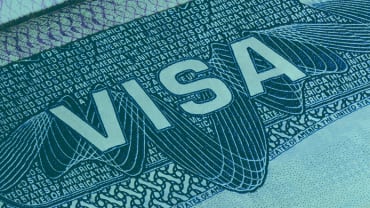The UK Government guidance on carrying out right to work checks was updated on 17 March 2021. This includes updates to clarify what the position is for UK employers on right to work checks for EEA and Swiss nationals now that the Brexit transition period and freedom of movement is over. We highlight the key considerations for employers during (i) the period before the 30 June 2021 deadline for applying under the EU Settlement Scheme; and (ii) after that date.
Have the rules on right to work checks changed for EEA and Swiss nationals in the period before 30 June 2021, now that free movement has ended?
No. Following the end of the Brexit transition period on 31 December 2020, EEA and Swiss nationals who were lawfully resident in the UK by 31 December 2020 were given a 'grace period' until 30 June 2021 to apply under the EU Settlement Scheme. Therefore, it is not yet mandatory for them to have applied, some may not apply until close to the deadline and many may not receive a response until after 30 June 2021. The new guidance confirms that right to work checks will not change for EEA & Swiss nationals until the end of the grace period.
For new employees commencing work in the period between 1 January 2021 and 30 June 2021, employers can continue to rely on EEA and Swiss passports or national identity cards as evidence of an individual's right to work even though free movement and the Brexit transition period have ended. No further checks are required.
EEA and Swiss nationals who become resident in the UK after 1 January 2021 may not have permission to work. But for now, the employer is not required to carry out additional checks to investigate that provided that employees start work before 30 June 2021.
The guidance is clear that employers will have a defence against a civil penalty in the event of illegal working if they have carried out the prescribed right to work checks before the employment commenced.
Do employers need to know whether EEA nationals entered the UK before or after 31 December 2020?
No. The guidance expressly states that employers: "are not expected to differentiate between EEA nationals who arrived before the end of the transition period (31 December 2020) and those arriving after in the grace period from 1 January to 30 June 2021.'" An EEA or Swiss passport or national identity card is sufficient evidence of right to work.
If an employer wants to go beyond the prescribed right to work checks set out in the guidance and require evidence of an application under the EU Settlement Scheme, is this permitted in the period before 30 June 2021?
The guidance states that such additional checks should not be required. Checks that someone has applied under the EU settlement scheme can only be carried out using the online checking system.
The guidance is clear that employers cannot mandate online checks currently and it also states that: "employers should not discriminate based on whether or not an individual is able or willing to demonstrate their right to work using the online checking service".
If employers cannot mandate such checks, can they carry them out if the individual agrees?
There is no benefit in going beyond carrying out the prescribed checks in relation to the risk of illegal working penalties. Employers will maintain a continuous statutory excuse against a civil penalty provided that the initial right to work check was based on an EEA or Swiss passport or ID card during the period before 20 June 2021.
Even if the individual were to agree to additional checks that go beyond what is required in the guidance, the employer may be exposed to a discrimination claim if EEA nationals are subject to additional checks which other nationalities are not asked to undergo where there is no justification for this in the guidance.
Should employers carry out retrospective checks?
The guidance states that there is no requirement for employers to carry out retrospective checks on EEA and Swiss nationals who were employed on or before 30 June 2021. It is unlikely that such a requirement will be introduced by the new guidance which will apply from 1 July 2021.
The current guidance states that if employers choose to carry out retrospective checks (even if they are not required to), then they: (i) must ensure they do so in a non-discriminatory manner, and (ii) should only ask questions about an individuals immigration status where: "it is necessary to determine whether their status imposes limitations on the number of hours they may work a week, the type of work they may carry out, or on the length of time for which they are permitted to work".
The Code of practice for employers: Avoiding unlawful discrimination while preventing illegal working provides helpful guidance for employers on avoiding discrimination when carrying out right to work checks. The code also refers to the risks of treating job applicants and employees differently based on nationality when that is not required by the right to work check guidance. Therefore employers are on notice of the race discrimination risk should they decide to make additional checks which are not supported by the guidance.
Are there any circumstances where employers might lose their statutory excuse if an EEA passport was checked before the employee commenced work?
The statutory excuse cannot be relied on if the employer is aware that the employee is an illegal worker. Advice should be sought if you consider that you may have knowledge of someone's status becoming illegal. Employers are not expected to ask questions about immigration status save to the extent that they are relevant for carrying out right to work checks.
How will the position on right to work checks change from 1 July 2021?
It is likely that the new guidance will require EEA nationals commencing employment on or after 1 July 2021 to provide evidence of their status and their right to work under the EUSS (or on some other basis). Irish nationals will continue to be able to rely on their passports as evidence of their right to work.
For more information on any of the issues raised in this blog, please contact Elaine McIlroy, Erin McLafferty, or your usual Brodies contact.
Workbox by Brodies users can find further information and resources on our Immigration pages.
Contributors
Partner
Associate













